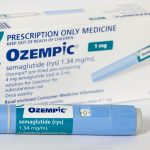As of 1am on Friday, masks will no longer be required at gyms and other indoor locations, however the chief health officer said they should still be worn “wherever you can’t social distance.”Wedding and funeral guest limits will return to 200 people, private gatherings at homes will be capped at 50, and open-air stadiums will return to 100 per cent capacity. Indoor venues including cafes, restaurants, bars, clubs, places of worship, libraries and art galleries will be able to host one person per two-square-metres, and private gatherings for up to 100 will be allowed in public spaces.
Ticketed venues including cinemas, theatres and live music venues will return to 100 per cent capacity. And, just in time for the weekend, the dance ban will be lifted at all indoor and outdoor venues, subject to the one-per-two square metre rule. All hospitality industry businesses must continue to comply with electronic contact tracing requirements. Ms Palaszczuk said it was unlikely there would be any further easing of social restrictions “until the vaccine.”Dr Jeannette Young said she wanted Queenslanders, particularly those in Greater Brisbane, to continue to come forward to get tested if they have “any symptoms at all”. In the last 14 days, 103,549 people in Queensland came forward to get tested. Only 38 cases were detected in that time, all in hotel quarantine. Queensland recorded just one case of COVID-19 on Thursday, an Emirates flight crew member who has already left the country.
NED-3019-vaccine-rollout
VICTORIANS ISSUED PROTEST WARNINGDaniel Andrews has issued a stern warning to Victorians not to attend any upcoming anti-Australia Day rallies.Thousands are expected to gather at the steps of Parliament House in Melbourne for an “Invasion Day” protest on January 26.But the Premier warned “now is not the time to protest”.“We‘ve built something precious and unique … Victorians have through their sacrifice and their commitment and their compassion for each other,” he told reporters on Thursday morning.“We have to safeguard that. And the best way to do that is to follow the rules and to be absolutely vigilant. That’s the most important thing.”
While rally organisers are encouraging COVID-safe measures, nearly 5000 people have expressed their interest in swarming the top end of Spring Street at about 10.30am next Tuesday. “We invite you to stand with us to abolish Australia Day. Today is a day of mourning for our people and marks a day of resistance against the British invasion,” rally organisers posted.They also mentioned COVID marshals would be in attendance. It comes after Victoria recorded its 15th straight day without any new locally acquired coronavirus cases.There was one new infection in an international arrival.Mr Andrews could not confirm if that person was associated with the upcoming Australian Open tennis tournament.
NO NEW LOCAL CASES IN NSWNSW has recorded no new locally transmitted coronavirus cases as several Sydney suburbs remain on alert for community spread. Five overseas travellers were diagnosed with COVID-19 in the 24-hour reporting period ending at 8pm on Wednesday night, NSW Health said. The alert for southwestern Sydney came on Tuesday after virus fragments were detected at a waste treatment plant in Glenfield, which serves over 160,000 people.NSW Health officials sent out an alert warning people in a number of nearby suburbs to be watchful for symptoms and get tested if any appear. Those suburbs are Airds, Ambarvale, Appin, Bardia, Blair Athol, Blairmount, Bow Bowing, Bradbury, Campbelltown, Casula, Claymore, Currans Hill, Eagle Vale, Englorie Park, Eschol Park, Gilead, Glen Alpine, Glenfield, Gregory Hills, Holsworthy, Ingleburn, Kearns, Kentlyn, Leumeah, Long Point, Macquarie Fields, Macquarie Links, Menangle Park, Minto, Raby, Rosemeadow, Ruse, St Andrews, St Helens Park, Varroville and Woodbine.PREGNANT PAUSE ON VACCINE ROLLOUTThe Therapeutic Goods Administration is investigating the “the safety and appropriateness” of vaccines for pregnant women and new mothers ahead of Australia’s vaccine rollout set to begin next month. On Wednesday, Deputy Chief Medical Officer Professor Michael Kidd said the TGA will provide recommendations for the elderly, young children, pregnant women and breastfeeding mothers. “It will look at whether the vaccine is safe to use for women who are pregnant or breastfeeding … that will be a core part of the advice that comes from the TGA,” Prof Kidd said, adding that data from clinical trials undertaken overseas would also be reviewed. Due to the speed of vaccine developments, many women are concerned about any unknown long-term side effects. HERD IMMUNITY ‘LONG-TERM GOAL’ Professor Allen Cheng has played down calls for a second round of vaccine rollout by Australia’s top scientists. Cheng, who is co-chair of the Australian Technical Advisory Group on Immunisation and Victoria’s deputy Chief Health Officer, described herd immunity as a “long-term goal”, saying the first priority is to stop the spread of the virus. “We’re going for protection to start with; we want to stop people getting sick and dying,” Prof Cheng told the Australian on Tuesday.“And if you need vaccines again in the future, we’ll be ready for that. But it’s better to get one now than not to get one.”
A number of Australia’s top scientists are calling for a second rollout plan after the Australian government ordered 53.8 million doses of the AstraZeneca vaccine, which has an efficacy rate of just 62 per cent for people who have two doses. The figure is well short of the 80 to 95 per cent required to meet herd immunity levels. But Professor Cheng says that even with the lower efficacy rate, the AstraZeneca vaccine will allow Australians to see a return to normal life. “If you can get a certain proportion of the population that’s completely immune, then, outbreaks just don’t happen,” adding, “even where there may not be full protection against transmission, vaccination will help to some extent. It will allow us to do more things.”
NED-2826-Australias-Vaccine-Rollout
OVERSEAS TRAVEL A NO GOOverseas travel will be off the menu for Australians this year, with tough border restrictions to remain in place even as a COVID-19 vaccine is rolled out, Australia’s top health chief has predicted.Secretary of the Department of Health, Professor Brendan Murphy, who led Australia’s coronavirus response in his former role as chief health officer, said it was unlikely the federal government would open the nation’s international borders this year.“I think the answer is probably no. I think we will go most of this year with substantial border restrictions, even if we have a lot of the population vaccinated, we don’t know whether that will prevent transmission of the virus and it is likely that quarantine will continue for some time,” Prof Murphy told ABC TV on Monday.
“One of the things about this virus is that the rule book has been made up as we go. I was very careful early on, I remember saying this to the Prime Minister, I don’t want to predict more than two or three months ahead. “The world is changing so at the moment we have this light at the end of the tunnel, the vaccine, so we will go as safely and as fast as we can to get the population vaccinated and we will look at what happens then.”It comes as Australia approaches the one year anniversary of closing its international borders — a call that was made by Prof Murphy.“That was probably the most momentous day of my time. It was February 1,’’ he said.“I remember, I was actually in Melbourne on that day visiting family. And I looked at the news, saw the situation in China and phoned Minister Hunt and phoned the Prime Minister and had a series of meetings that day. And the borders were closed at 9pm that night. Which is an extraordinary thing. And I think that our border measures, in retrospect, have been one of the reasons why we have never really had significant community transmission, other than that second wave in Victoria.”
NED-1859 State of our borders
NSWThere are no restrictions around travelling to or from regional or rural NSW, or other areas of NSW.However, NSW Health currently recommends delaying non-essential travel within NSW, especially between Greater Sydney and regional and rural areas.There are no permits required for people entering NSW from interstate.
FACE MASKS
In Greater Sydney (including Wollongong, Central Coast and Blue Mountains, face masks are mandatory in certain indoor settings. A $200 on the spot fine will apply if you do not comply with the requirements to wear a face mask.Children aged 12 and under are exempt but are encouraged to wear masks where practicable.Places where face masks must be wornYou must wear a face mask indoors when you enter or work at*retail or business premises that provides goods or services to the public including*supermarkets*shopping centres*banks*post offices*hairdressers.*residential aged care facilities (visitors, not residents).Premises that are used for the purpose of providing health services are not retail premises or business premises.Face masks are also mandatory when you are using public transport or are a passenger in a taxi or rideshare vehicle when you are waiting at a public transport waiting area (such as a bus stop, train platform or taxi rank) for all staff in hospitality venues and casinos for patrons using gaming services.SOUTH AUSTRALIATravellers are not permitted to travel to South Australia from the Greater Sydney, Central Coast and Wollongong areas unless they are an essential traveller or an exempt person.From January 17, travellers from the Greater Brisbane area do not have to undergo 14 days of self-quarantine upon arrival in South Australia but must submit to a COVID-19 test on day 1, 5 and 12. VICTORIAVictoria has reopened its border to the majority of Sydney.The traffic light-style system permits travel from “green zones” (no quarantine required) and “orange zones” (travellers required to be tested for COVID-19 within 72 hours of arrival and isolate until they receive a negative result).People in Brisbane are allowed to travel to Victoria without needing to apply for an exemption under a relaxation of the state’s border restrictions.
NORTHERN TERRITORYAll arrivals to the Northern Territory (NT) must: fill in a Border Entry Form and complete 14 days of mandatory supervised quarantine at their own expense, if they have recently been in an active declared COVID-19 hot spot. This includes children returning from a hotspot.
QUEENSLANDMost people can travel freely to Queensland unless they have been in a COVID-19 hotspot or in any part of NSW. Road border checkpoints are in place and border passes are required for anyone entering Queensland from NSW.
WESTERN AUSTRALIAInterstate travel is permitted into and around WA, depending on where travellers have come from and who they’ve had contact with in the 14 days prior to travel. They are also subject to conditions, including completing a G2G PASS declaration prior to entry.The ACT, NT, SA and Tasmania are deemed very low risk. Travellers from Victoria are required to self-quarantine for 14 days at their own expense. Queensland and NSW travellers — deemed medium risk — must wear masks, self-quarantine for 14 days and will be tested within 48 hours of arrival. TASMANIATravellers from the Greater Brisbane region as well as Greater Sydney, the Northern Beaches and Wollongong must self-quarantine on arrival for 14 days. AUSTRALIAN CAPITAL TERRITORYThe ACT will lift its travel ban for Sydney’s northern beaches residents on Tuesday. Prior to this, non-ACT residents have been banned from entering the territory if they were in a COVID-19 affected area of NSW.
Powered by WPeMatico






